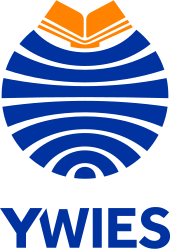Go Back
News
Wechat News
How Unsung Sweaty Sports Can Develop Grit and Character for Life
Wechat News
31 Mar, 2021
10 : 00
Physical Education (PE) is often trivialised as just simple exercise to promote health. Few realise that it is in fact a rigorously scientific subject. PE can be a quiet but profound influence on character formation, a discipline that also helps shape a student's perception of other human beings, exercising emotions and strengthening values. Simply put, appreciating PE means placing a high value on character education.
Scoring a Goal for the Girls
Mr Alastair Frost, also known as Ali, is the Head of Physical Education at YWIES Guangzhou. He is a footballer who represented New Zealand at the age of 11, going on to become one of the youngest ever national football coaches at 24. When Ali joined YWIES Guangzhou in 2018, Ms Shannon Shang, the Chinese Co-Principal, told him, “Our biggest concern is about how to motivate more students to take up sport. Our goal is to motivate more active and playful sports in students, more training time, especially for the girls.”“I noticed that football is gaining popularity in China,” says Ali. “There was a boys’ football team in the school and I thought I should grasp the opportunity to launch one for the girls. And let’s not ignore the fact that girls can do anything boys can.” The new PE head sought out Jane, a young lady with strong football skills. “She really wanted to establish a girls’ football team,” he recalls, and “this was the best start anyone could have imagined.” Ali started with three training sessions per week and students were free to swap their choices at any time during the year. “I had to create many options so that students would not miss the opportunity to participate” as they had other training planned or a piano lesson looming.
There was immediate resistance. Some dejected students came up to Ali to inform him their parents did not want them pursuing a “boys’ sport” and getting further distracted from studies.
“How about you? What do you think?” Ali asked one.
“I just want to play football,” she said.
“How can I help to make your parents agree?” he asked.
After a discussion with the children, Ali decided to write letters to their parents. “I listed the benefits of sport. Sports not only fulfils the educational and social development needs of children but also cultivates their leadership skills and character.”
What came with the letter was a brief resume of Ali’s 17-year teaching and coaching experience and 20 years of playing with New Zealand’s national team. “I wanted to show that I am not just a teacher, but also a professional football coach. I wanted to help my students persuade their parents. I wanted to give their children an opportunity that other teachers may not be able to provide.”
Ali recalls: “Later, one student came up and said the 15 minutes she spent discussing this with me was the highlight of her year. It was the first time she had tried so hard to express her thoughts in English.”
When the team was finally assembled it dawned on them that the majority of the players had never been exposed to professional sports training for a single sport in their entire 13 years. The routine had to start from scratch. As time progressed, Ali was delighted to spot improvements in physical fitness and skills, but a lot more confidence was needed. “Previously, there were only three training session per week, each for just 25 minutes.”
A thought crossed Ali’s mind: “Are you interested in training on Saturdays?” he asked the group. “It takes about one to two hours per session.” It was a two-hour journey to and from school but “they all agreed”.
Ali wrote to all the parents urging them to “rearrange Violin and Maths classes”. Most responded that this was impossible. Ali persisted. He knew the children wanted to train.
On the first Saturday of training, 18 girls turned up, a minor miracle. Said an ecstatic Ali, “I’ve made the impossible come true.”
Now every Saturday, more than 10 parents come to the training sessions with their children. They make lunch for all, and bring a whole set of utensils to cook hotpot. “At the beginning we agreed on a two-hour training and now we sometimes spend five hours together eating and chatting,” says Ali.
A mother who did not want her daughter to play football came up to Ali one Saturday. “I’m one of the parents who thought a girls’ football team is a bad idea,” she said. “I found that I was wrong.” Her daughter’s persistence had paid off.
Ali is delighted with the response he has received. “I know I have changed the ‘wall’ in their minds and I’m more than happy to coach in my spare time.”
“Let Me Try” Is Music to a PE Teacher’s Ears
In 2020, Bill (William) Hester joined the PE Department of YWIES Guangzhou. Bill is a kayaker who had worked outdoors for more than 20 years. He describes the philosophy of PE at Yew Wah where every child is like a small tree that needs nurturing soil in the form of “safe relationships and environments”. Says Bill: “As a PE teacher, my primary duty is to create a safe environment” and encourage students to move from “I can’t” to “Let me try”.“We began training for running fitness and my goal was a one-minute non-stop run, says Bill. “There was no need to run fast or catch up with others. We only required the children to run continuously.” Despite the initial complaints they can now “run non-stop for three-and-a-half minutes”.
The PE framework at Yew Wah targets three issues:
Character Development – self-discipline and willpower, teamwork and self-management; Motor Skills – learning about health and sports rules and developing athletic ability; Physical and Mental Health – improving physical fitness, endurance, immunity and social adaptability.Co-Principal Ms Shang believes PE is part of a complete holistic education process and she is very clear about this: “PE is a rigorous, scientific and professional subject.”
Mr Jack Liu, a graduate from the School of Physical Education & Sports Science of South China Normal University – the only Chinese teacher and the youngest member of the secondary section – explains: "Through individual sports, we first guide learners to experience self-discipline and personal responsibility."
"From self-discipline, the learner is led onto the ‘team’ stage to comprehend the meaning of ‘leadership’ and how to collaborate or concede."
The third stage inculcates a sense of “cultural diversity” and “sportsmanship”. As Jack sees it, the process encourages students to persist with “diligence” against all odds.
In Bill’s account, physical education does not aim for children to become great athletes. “The ultimate goal of our teaching is to help students in their everyday and future lives, to be healthier, happier and more positive.”
Besides its teaching objectives and curriculum design, physical education at YWIES Guangzhou places emphasis on weighted evaluation. “We will not use grades and in-class performance as the only assessment standard. We will also take into consideration the will and the hard work put in,” says Bill.
To build self-motivation in students, the Sports Department has created a five-point evaluation system. It considers things like teamwork and possible improvements, as well as leadership and collaborative skills.
"In Chinese culture, people are not expressive but can be very direct in evaluating themselves and others,” says Ms Shang. “This is actually a process of self-awareness and introspection. In this way, they can also build a candid and trusting partner relationship."
Sport, Sportsmanship and Good Sports
"In our school, sportsmanship is a part of campus life,” observes Ms Shang. It is on display at inter-school tournaments or when teachers step in as cheerleaders. There is a high level of “spontaneity in organising activities” from marathons to assorted ball games. Ali is often at the forefront, encouraging teachers to be good sports and participate in various competitions."There is also teacher-student combat!” Ms Shang exclaims with a laugh. “I scored a goal in the last match.” She sees tremendous spirit in the youngsters who often perform like national volleyball champions.
For Ali, sport is a form of cultural expression that brings together students, parents, and teachers with a sense of shared pride.
As one of the ‘three musketeers’ of the Sports Department at YWIES Guangzhou, Jack feels an “immense sense of bliss and content”. It has wrought big changes in him too. “With the integration of Chinese and Western cultures and the support of the team, I have become more open-minded and free spirited,” he says. “The management style of the school, the bonding among colleagues and the general ambience on campus, have all brought me great happiness. And there are, of course, my students.”
Sometimes when Bill notices a student looking lost or perplexed, he asks, "What do you think my role is?" The response is usually, "To teach sports,” to which Bill responds, "My job is to help you to become a better person."











